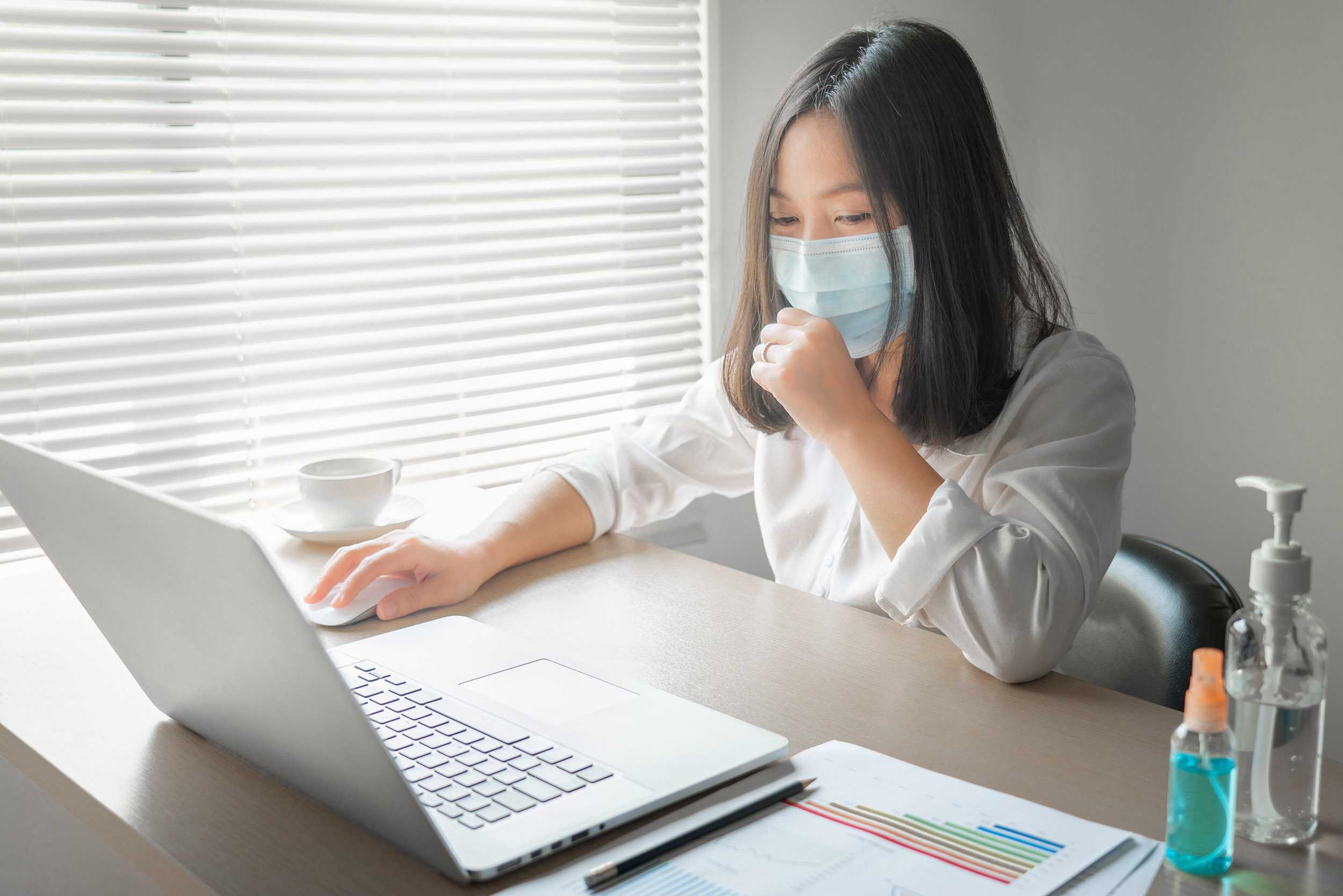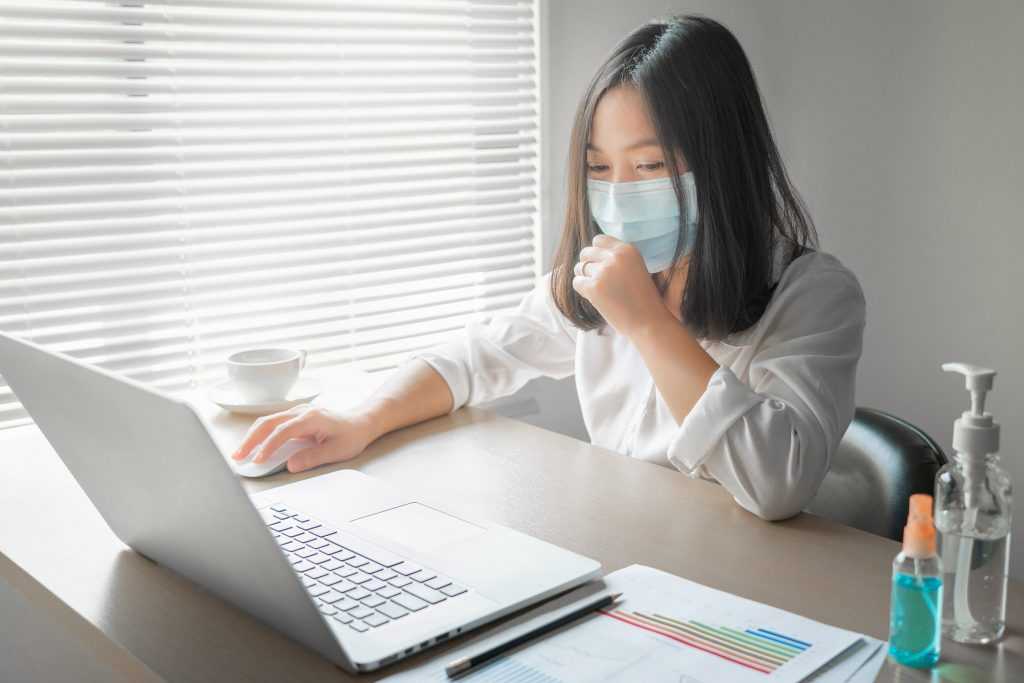
EMPLOYMENT LAW – COVID-19 – The Law Un-Masked: Primer for Employers and Employees
Members of DCC examine the impact of COVID-19 (“Coronavirus”) in the article series “The Law Un-Masked”, where we discuss key issues, obligations and rights the legal system in Hong Kong is facing in light of the recent pandemic. In our first installment, Earl Deng and Isabel Tam discuss Employment Law issues for Employers and Employees.
閱讀中文版本: 新冠病毒下的法律面貌:給僱主和僱員的法律指南
 As the COVID-19 pandemic continues its spread around the word and re-introducing new clusters into Hong Kong, the realization for many businesses that the current situation of social and physical distancing[1], travel restrictions and self-quarantine will prevail for not weeks, but months even will mean serious disruption and business will not be usual.
As the COVID-19 pandemic continues its spread around the word and re-introducing new clusters into Hong Kong, the realization for many businesses that the current situation of social and physical distancing[1], travel restrictions and self-quarantine will prevail for not weeks, but months even will mean serious disruption and business will not be usual.
We have therefore prepared a short primer for employers and employee to know their rights and obligations in these uncertain times.
Q1. Have the rights and obligations in the employment relationship changed because of the Virus?
The Employment Contract and provisions in the Employment Ordinance (“EO”) continue to regulate ongoing relationships and obligations between employer and employee, including termination, unpaid leave, medical leave and compensation thereof.
Other relevant statutory provisions in which employers and employees have to take note of would be the Occupational Health and Safety Ordinance (“OSHO”), Occupiers Liability Ordinance (“OLO”), the common law duty of care, the Disability Discrimination Ordinance (“DDO”), and the Prevention and Control of Disease Regulation, the Compulsory Quarantine of Certain Persons Arriving at Hong Kong Regulation and the Compulsory Quarantine of Persons Arriving at Hong Kong from Foreign Places Regulations (“Disease and Quarantine Regulations”).
[1] https://www.reuters.com/article/us-health-coronavirus-who/who-message-to-youth-on-coronavirus-you-are-not-invincible-idUSKBN21733O
Q2. Under what circumstances can an employer require workers to go on unpaid leave or to work for a reduced salary?
Requiring a worker to forgo their contractual salary or take unpaid leave is equivalent to a unilateral variation of the contract and will amount to a breach of contract. Employers doing so may be in repudiatory breach and aside from compensation for the period in which the employee was on unpaid leave[2], would be releasing the employee from any notice period and enforceable post-termination restrictive covenants, and liable for breaches of the Employment Protection Provisions in Part VIA of the EO.
Employers may nonetheless rely on Section 32K of the EO, i.e. “(c) the redundancy of the employee or other genuine operational requirements of the business of the employer.” to avoid claims for relief under Part VIA of the EO (including mandatory reinstatement of the employee). Depending on the circumstances, significant costs savings may fall within the definition of “genuine operational requirement”. [3]
Importantly, contracts which do not exclude non-discretionary annual statutory end of year payment under Part IIA of the EO (commonly referred to as ‘thirteenth-month payment’, ‘fourteenth-month payment’, ‘double pay’, or ‘end of year bonus’) continue to be payable, and must be assessed on the full wages and not the reduced monthly average wage due to unpaid leave.
For employers: If this step is necessary, communicate the suggestion of unpaid leave in writing (as opposed to orally), and have any consent of the employee as to the suggestion of unpaid leave (and/or any other variations to the contract such as reduced pay) also be communicated in writing together with the reasons for the variation. In the event that employees refuse, a variation of wages and benefits may amount to a repudiation of the employment contract. The option of termination of contract in a manner that does not constitute unreasonable or unlawful dismissal, also remains open to the employer. You may also apply for financial assistance from the government’s Anti-epidemic Fund.
For employees: If your employer presents you with genuine operational requirements for you to take unpaid leave, you are entitled to disagree – one possible consequence is that the employer would upon the termination of contract, be entitled to raise a defence of “genuine operational need” against relief sought under Part VIA of the EO (for example remedies for an order of reinstatement). Bear also in mind that there are advantages of taking unpaid leave, namely: (i) the continuity of the employment contract is preserved during the period of unpaid leave, and this period of time will factor into statutory benefits including severance payment under Part VA of the EO, protections against unreasonable dismissal under s.32A of the EO, and for the purposes of accumulating statutory sickness allowance or eligibility for statutory maternity/paternity leave; (ii) any contractual benefits will be retained, including medical insurance. If you wish to work on a second job while on unpaid leave, do make sure that you have the consent of the employer and make this in writing as well.
[2] Symonds v Redmond-Ord [2013] 10 WLUK 654; [2014] I.C.R. D6 (Employment Appeal Tribunal)
[3] Chan Kam Yau & Anor v The Hong Kong University of Science & Technology, unreported, DCCJ 4016/2006, 21 December 2007
Q3. My employee has placed himself/herself under voluntary quarantine. What are our respective rights and obligations?
An employer must, so far as reasonably practicable, ensure the safety and health at work of all its employees. This includes taking reasonable steps to maintain the workplace in a condition that is safe and without risks to health. Such duties arise pursuant to the OSHO and also under common law duties of care.
Some employees may have travelled overseas but might not be subject to the government’s mandatory quarantine orders, for example, due to having returned shortly before 19 March 2020. Depending on the circumstances, it may be necessary for the employer to direct an employee to not access the workplace, for the purposes of maintaining the safety of the workplace and to lower the risks to health of other employees.
An employer’s obligation to pay wages continues during such periods of voluntary quarantine. The employee likewise continues to have obligations to perform employment, depending on the feasibility of carrying out those duties in his/her place of quarantine during working hours under the contract. This will vary greatly from job to job.
For employers: In the absence of a specific quarantine order, an employee can be required to attend work and duties and it will be for each individual employer to assess the risk and taking steps to ameliorate the risk of spread of contagion. Where the employer agrees to the voluntary quarantine arrangement, the employer should ensure that the employee has the tools and equipment to work remotely, and in the absence of such, ensure that there are no steps taken to penalize the employee who is unable to work remotely.
For employees: While you have no legal right to insist on self-quarantine, your employer owes a duty of care to its customers and other employees to a reasonable safe and healthy working environment. If the employer has required physical attendance, it would be reasonable to require safety equipment for the purpose of carrying out work related to employment, i.e. surgical mask and/or safety goggles depending on the work environment. In remote working conditions, you can make reasonable requests for equipment to enable remote working. Do watch out for subsequent appraisals to ensure you have not been penalized due to the absence of such equipment affecting productivity and performance.
Q4. I have informed my employer that I have been placed under a quarantine order or order of medical surveillance or isolation order. Do I continue to receive pay?
The Disease and Quarantine Regulations empower health officials to issue compulsory quarantine orders against persons who have confirmed diagnosis or have come in close contact with COVID-19 cases, and those persons traveling from certain specified regions in the world, most notably including those who have travelled into Hong Kong from 8 February 2020 onwards from the Mainland, and from 19 March 2020 onwards from all places outside China. Those regulations also empower health officials to place a person under isolation if there is reason to believe that the person is infected with COVID-19 until that person is no longer considered infectious or until that person can be placed under medical surveillance instead.
A person placed under quarantine or isolation naturally cannot go to his or her normal place of work – those who flout a quarantine or isolation order commit an offence and are liable on conviction to a maximum sentence of six months imprisonment and a fine of $25,000: see s.29 of Prevention and Control of Disease Regulation, Cap 599A.
A person placed under medical surveillance will be issued with a medical certificate stating that they are under “medical surveillance” which may entitle such a person to take sick leave. While the Labour Department has urged that “employers must grant [an employee under medical surveillance] sick leave in accordance with the requirements under the Employment Ordinance”[4], the wording of the EO leaves it unclear as to whether a symptomless employee falls within the definition of taking a “sickness day” as he or she is not “absent from work by reason of his being unfit therefor on account of injury or sickness”.
A person placed under isolation will be a person believed to be infected with COVID-19, and therefore that employee would naturally be entitled to sick leave.
For employers: It is important to bear in mind there are now 4 categories of persons who may be under restrictions: (i) medical surveillance due to close contact with confirmed COVID-19 patient; (ii) quarantined due to being confirmed COVID-19 (“Coronavirus”) diagnosis; (iii) isolated due to being confirmed COVID-19 (“Coronavirus”) diagnosis; (iv) quarantined due to traveling into Hong Kong from a specified region.
The EO definition of “sickness day” requiring unfitness or illness means that only categories (i), (ii) and (iii) will be entitled to claim “sickness day” allowance. For category (iv) employees, depending on the facts, they will be in the same or similar position as persons who are being asked to take unpaid leave in the event they are unable to discharge their duties, or employees who can be expected to work remotely (see Q2 and Q3 above).
For employees: The terms of your contract regarding your employer’s obligation to pay wages and your right to sick leave continue to apply during this period. You ought to comply with the terms of any quarantine, isolation or medical surveillance order issued by the authorities, and inform your employer of the same immediately along with copies of the relevant documents showing the fact of such order. If you are unable to work during the quarantine, isolation or medical surveillance period, due to feeling unwell, you should apply for sick leave under the normal procedure. If you are under quarantine and feel well, then your duties of employment will continue if you are able to work remotely. The possibilities arising under Q2 and Q3 above will also apply to you.
[4] https://www.news.gov.hk/eng/2020/01/20200130/20200130_115826_344.html?type=ticker
Q5. My employee has COVID-19 (“Coronavirus”) or I suspect him or her of having COVID-19 (“Coronavirus”). Can I require him/her to self-isolate and get mandatory testing?
The requirement for mandatory testing for any disease or symptom would in usual circumstances be contrary to principles of equality and maybe a contravention of discrimination provisions[5]. However, the Disability Discrimination Ordinance provides a specific statutory exemption for “infectious disease” and for “protection of public health” for which COVID-19 will fall under.
However, testing and the results would be information protected under Data Protection Principle I of the Personal Data (Privacy) Protection Ordinance which provides that only necessary and adequate but not excessive personal data should be collected for the purpose of which it was collected.
For employers: While there is a specific infectious disease exemption under the DDO, it is important before taking any action to establish whether such action would be proportionate to the threat presented. As such it would be prudent to establish a policy and with written consent of all employees to self-declare travel and health information and for those exhibiting symptoms to report and test. Any measures taken should minimize hardship for the employees concerned, and also to avoid singling out specific groups of persons (i.e. to test only Caucasian employees because they may have more social interactions with recent returnees from overseas).
For employees: Unlike many overseas jurisdictions, employers have a right to take reasonable measures for the protection of public health and against infectious diseases. Make sure that anything you sign will contain provisions to protect your information from unnecessary disclosure to the general public save and except necessary to protect public health.
[5] Waliyah v Yip Hoi Sun Terence [2017] 1 HKLRD 1082
This article was produced by Earl Deng and Isabel Tam.
Looking to save a copy or share with colleagues? Download the PDF version: COVID-19 – The Law Un-Masked – Employment Law issues for Employers and Employees

Earl Deng was called in 2008 and has a developed a broad and busy civil law practice which encompasses both complex advisory and advocacy work in the fields of commercial, contractual, chancery and intellectual property disputes and is known as a specialist advocate for public and administrative law matters, and minority rights.
For more details on Earl’s practice please click here.

Isabel Tam was called in 2013, and her practice has an emphasis on the areas of public law, family law, commercial law, regulatory matters, and building management. Alongside an MA in competition law and spending a period seconded to the ‘Competition Commission’ means Isabel is also well equipped to deal with competition law related matter
For more details on Isabel’s practice please click here.
For any questions concerning this article, please direct these to our Practice Development Managers, Taylor Goodwin ([email protected]) or Sonia Chan ([email protected])
Disclaimer: This article does not constitute as legal advice and seeks to set out the general principles of the law. Detailed advice should therefore be sought from a legal professional relating to the individual merits and facts of a particular case.